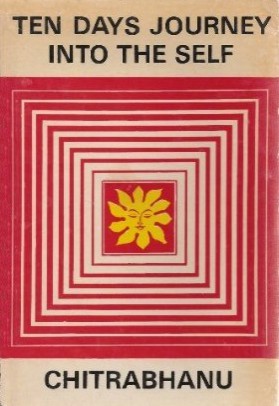Becoming free by recognizing and overcoming our inner enemies
We can enter meditation by repeating a mantra. However, to do its work, a mantra calls for our pondering the full scope of its meaning, and its application in our daily living. It requires the entire struggle of life behind it.
Friends. We will enter meditation by pondering the universal mantra “Namo Arihantanam". “Namo Arihantanam" means “I bow before those who have conquered their inner enemies, in order to conquer my own inner enemies."
There is no name of a particular god or saint or apostle, or any delineation of race or nation or culture in this evocation; it is species wide. We all have inner enemies. The enlightened are those who have recognized and overcome their inner enemies, and thereby have been enabled to reach the state of perfection. I define perfection as the state of anyone who is bringing his potentiality for creativity into full bloom.
To build the good life, and to help turn this earth from a battlefield into a garden, all of us have to overcome our inner enemies. But inner enemies are not easy to recognize! Hitler, blind to his inner enemies, idealized his sadistic power drive as the instrument for achieving a victory that would last a thousand years. Did those who burned witches recognize their own inner enemies? They projected their fear on the women they burned.
Often our inner enemies seem to operate in pairs. We are afraid to recognize some weakness or malice in ourselves and project it outward onto others. If we are afraid to assert ourselves, to become ourselves, we listen to inner culprits telling us to settle for the security of the familiar instead of taking the risk of advancing into the dimension of the unknown. Or we may fill our emptiness with “something that is better than nothing,“ that is, by indulging in alcohol, drugs, rituals, and day dreams. The leader of our band of inner enemies is always assuring us there is no means for us to live in any other way! How expertly we disguise, idealize, and rationalize our inner enemies!
Over twenty-five hundred years ago, Mahavir told us to know and overcome our inner enemies. he also said, “Ekam jane savvam jane,“ - “He who knows one knows all." After that in ancient Greece, Socrates advised “know thyself." He and other sages have insisted, “Know the truth, and truth shall set you free." they recognized that the root of evil is ignorance. Today, psychology and psychiatry are developing
a science of self-knowledge of which the seers have had foresight for over twenty-five centuries.
Several years ago a young man came to America from Germany. His father was a rabbi who was obsessed with the idea of virtue and tried to pound his own ideas into his son. He often severely punished his boy for failing to live up to his rigid standards. Ultimately this boy fled from his home and family, fell in with people who used drugs, and became an addict. Next he became a thief in order to find money to pay for his drugs. Finally, he was arrested and spent six months in a prison. When he came out, he met some people who were doing yoga, and under their influence he became an ardent student for the next six or seven months. But then he relapsed.
One evening he came to one of my talks, and later he came to see me. He told me about his background and then he said, “I know yoga, I do the postures, pranayama breathing, and I meditate. But my old habits are defeating me. Yet when I heard you speak, something that wishes to overcome welled up in me.
This my friend is a common picture. We fall into a condition in which there is a civil war raging inside of us. There is conflict- even in the truly gentleman's heart; even in a good person's life, there is something which will try to drag him down. Once he gives up, he becomes weaker and weaker. It is like someone missing the top step on a staircase and tumbling backward; he picks up momentum as he tumbles down. But good company and the words of a teacher can inspire us to begin again.
I asked this young man, “why do you get this temptation?"
He told me, “My father was so cruel and harsh with me that ultimately he disgusted me. his intentions were all right. He wanted me to be good and pious, but his methods were brutal. Now I have lost faith in my father, in the clergy, and in the teaching of my religion. So I turn to drugs to dull the pain." Perhaps he was trying also to defeat his father for having been so cruel to him. I said to him, “But why lose faith in yourself? Lose everything else, but not this. As long as you can hold on to faith in yourself, you are saved. From this, everything can be regained."
In response to a certain environment, a child devises a response that becomes habitual. And then the habit forms a character. And the character tends to form a destiny. Even though habitual attitudes feel comfortable, we become their prisoners. They even persist after the environment in response to which they were formed has been left behind. There parents who would improve their children must first improve themselves. They should reform themselves for the well-being of their children, if for nothing else.
When the wish to overcome inner enemies wells up, some people go to psychiatrists or other professionally trained people. However the number of psychiatrists and professionally trained people in the world is limited. Also, unfortunately many professional people become hypnotised the ego-centrism of the society today. If we have faith in ourselves, I think many of us can recognize and overcome our inner enemies; but we have to focus on the search for them.
To know yourself, scrutinize deeply and carefully. Listen to where the words come from when you speak. Observe the consequences of your thoughts, attitudes, actions. Do not suppress thoughts and feelings, but observe, discover and examine. What is the cause of hiding? What is behind the anger? What is behind the self-defeat? What is behind the emptiness?.......Beauty is within, but something is in the way.
For deep introspection, one needs a peaceful atmosphere. It is only in moments of utter tranquility that one can see what lies buried deep within. In our daily lives there are so many distractions, so many pressures and worries! Even the man who seems so prosperous in the worldly sense is not free from these pressures. On the contrary, the more he concentrates on the means to material prosperity, the greater the tension and worries. Such a man does not have a moment of peace even for a meal; Thus how can he have the time and calm state of mind so necessary for introspection? This is why for all of us meditation is necessary.
And as we concentrate on Namo Arihantanam, overcoming our inner enemies, at first we may find it painful. There is no instant enlightenment, no instant lasting freedom from inner enemies. We are accustomed to instant everything - instant coffee, instant light, instant water, instant photograph; and we want instant enlightenment. if you plant a seed, you will not instantly get a tree!
Find what is the shadow blocking the light, if you are not ready to open the door, the sun won't open it for you.
As we meditate, we will open the door,.... our essence will separate from our inner enemies. Our inner enemies will go, and our essence will shine, radiate... We will be free....
Let us concentrate on the process of becoming free by recognizing and overcoming our inner enemies.
THOUGHTS
- Never lose faith in your deep self, the center of your being.
- Learn to recognize and overcome all inner enemies. Be patient, realizing that seed and character grow slowly and that suffering and error can be used as manure to fertilize your inner garden.
- Perfection is the inner potential brought by unremitting effort and struggle, to its fullest stature.
 Gurudev Chitrabhanu
Gurudev Chitrabhanu
